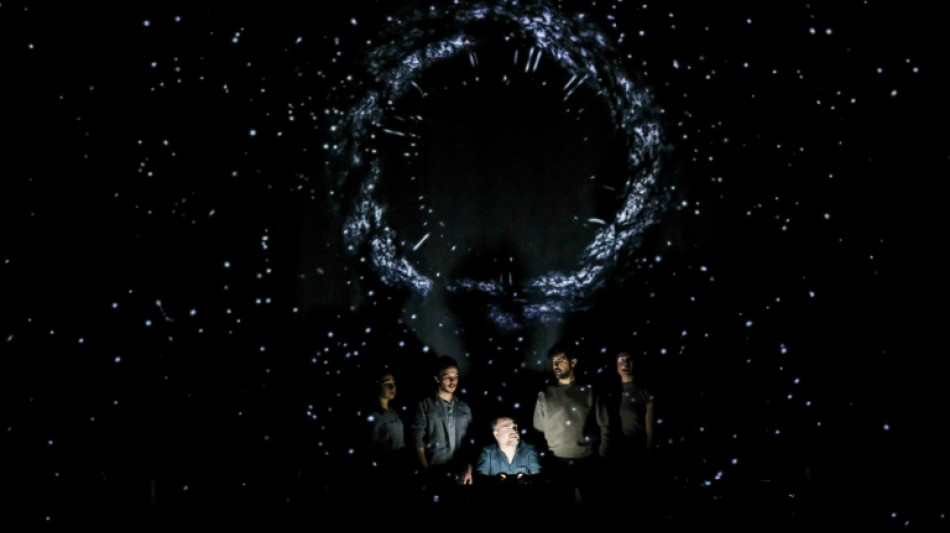
-
 Japan's Totsuka wins Olympic halfpipe thriller to deny James elusive gold
Japan's Totsuka wins Olympic halfpipe thriller to deny James elusive gold
-
Canada's PM due in mass shooting town as new details emerge
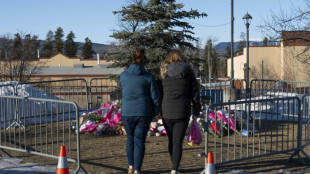
-
 Neto treble fires Chelsea's FA Cup rout of Hull
Neto treble fires Chelsea's FA Cup rout of Hull
-
Arbitrator rules NFL union 'report cards' must stay private

-
 Dortmund thump Mainz to close in on Bayern
Dortmund thump Mainz to close in on Bayern
-
WHO sets out concerns over US vaccine trial in G.Bissau
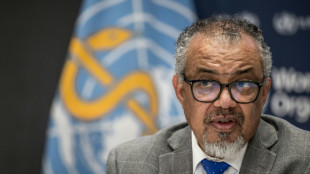
-
 Skeleton racer Weston wins Olympic gold for Britain
Skeleton racer Weston wins Olympic gold for Britain
-
Ex-CNN anchor pleads not guilty to charges from US church protest
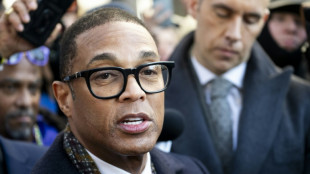
-
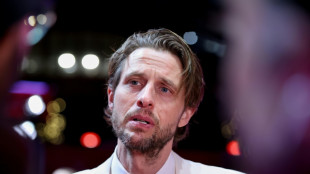 Berlin premiere for pic on jazz piano legend Bill Evans
Berlin premiere for pic on jazz piano legend Bill Evans
-
Fire at refinery in Havana as Cuba battles fuel shortages
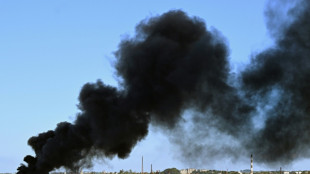
-
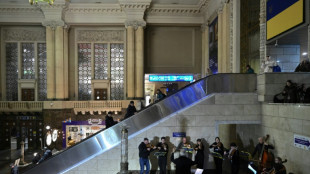 A Friday night concert in Kyiv to 'warm souls'
A Friday night concert in Kyiv to 'warm souls'
-
PSG stunned by rampant Rennes, giving Lens chance to move top

-
 Japan's Totsuka wins Olympic halfpipe thriller as James misses out on gold
Japan's Totsuka wins Olympic halfpipe thriller as James misses out on gold
-
Indian writer Roy pulls out of Berlin Film Festival over Gaza row
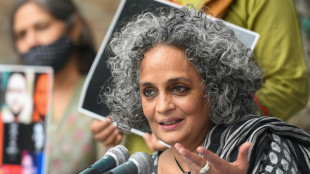
-
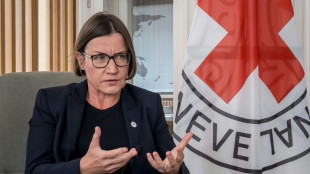 Conflicts turning on civilians, warns Red Cross chief
Conflicts turning on civilians, warns Red Cross chief
-
Europe calls for US reset at security talks
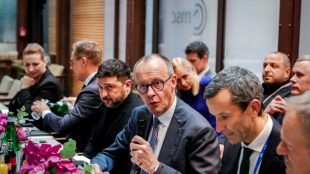
-
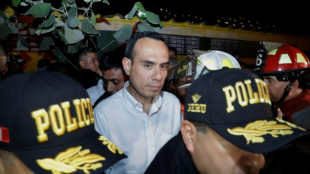 Peru leader under investigation for influence peddling
Peru leader under investigation for influence peddling
-
Rising star Mboko sets up Qatar Open final against Muchova
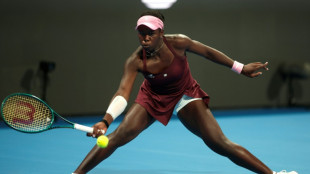
-
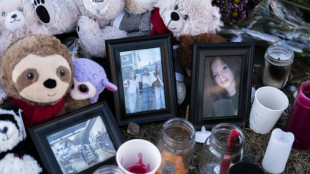 Canada PM to mourn with grieving town, new details emerge on shooter
Canada PM to mourn with grieving town, new details emerge on shooter
-
US waives Venezuela oil sanctions as Trump says expects to visit
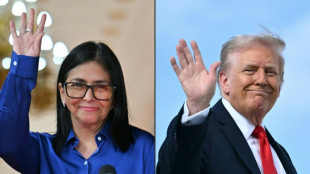
-
 NBA star Chris Paul retires at age 40 after 21 seasons
NBA star Chris Paul retires at age 40 after 21 seasons
-
WTO chief urges China to shift on trade surplus
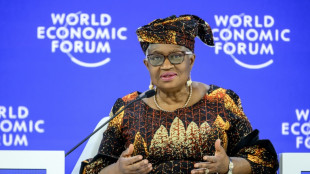
-
 Vonn hoping to return to USA after fourth surgery on broken leg
Vonn hoping to return to USA after fourth surgery on broken leg
-
Trump sending second aircraft carrier to pile pressure on Iran

-
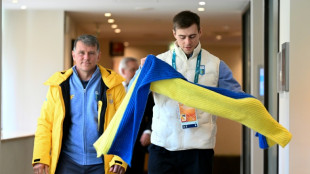 Heraskevych loses Olympics disqualification appeal, Malinin eyes second gold
Heraskevych loses Olympics disqualification appeal, Malinin eyes second gold
-
Mercedes have 'taken a step back': Russell
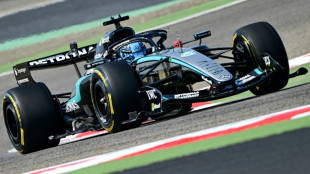
-
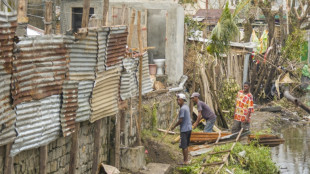 Madagascar cyclone death toll rises to 40, water, power still out
Madagascar cyclone death toll rises to 40, water, power still out
-
Earl says England inspired by last year's Calcutta Cup

-
 USA romp past Dutch in T20 World Cup to keep Super Eight hopes alive
USA romp past Dutch in T20 World Cup to keep Super Eight hopes alive
-
De Minaur scraps past local legend van de Zandschulp
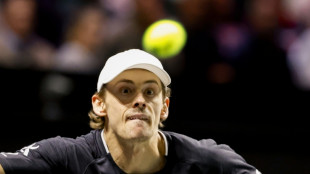
-
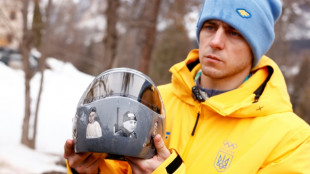 Ukrainian Heraskevych loses appeal against Olympics disqualification
Ukrainian Heraskevych loses appeal against Olympics disqualification
-
Ghana rallies round traditional tunic after foreign mockery
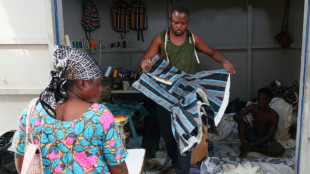
-
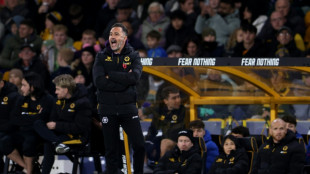 Forest set to hire former Wolves boss Pereira: reports
Forest set to hire former Wolves boss Pereira: reports
-
England rugby captain Itoje slams Ratcliffe's 'ridiculous' immigration comments

-
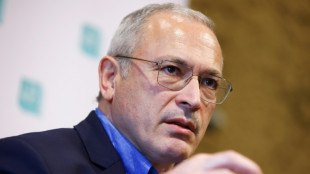 Europe should speak to Russia with 'one voice', Putin foe says
Europe should speak to Russia with 'one voice', Putin foe says
-
US Congress impasse over immigration set to trigger partial shutdown

-
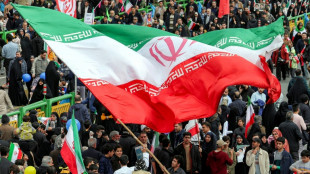 US to deploy new aircraft carrier to Middle East as Trump warns Iran
US to deploy new aircraft carrier to Middle East as Trump warns Iran
-
Ubisoft targets new decade of 'Rainbow 6' with China expansion

-
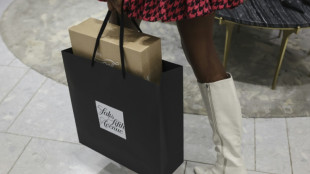 Stocks trend lower as AI disruption worries move to fore
Stocks trend lower as AI disruption worries move to fore
-
Spurs set to hire Tudor as interim boss until end of season: reports
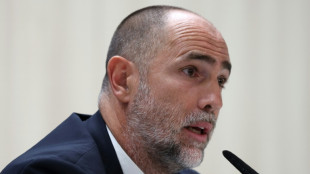
-
 International crew en route to space station
International crew en route to space station
-
Man City's Rodri charged over ref rant
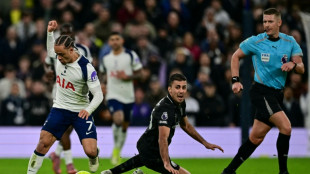
-
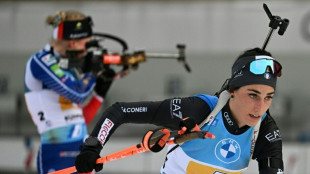 Italian biathlete Passler cleared to compete at Olympics despite positive test
Italian biathlete Passler cleared to compete at Olympics despite positive test
-
Macron slams 'antisemitic hydra' as he honours 2006 Jewish murder victim
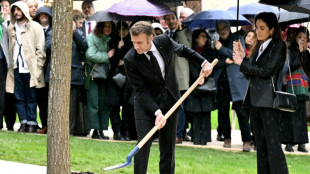
-
 Tuipulotu warns England to beware 'desperate' Scotland in Six Nations
Tuipulotu warns England to beware 'desperate' Scotland in Six Nations
-
Cash-starved French hospitals ask public to pitch in

-
 US consumer inflation eases more than expected to lowest since May
US consumer inflation eases more than expected to lowest since May
-
Germany's Merz urges US to repair ties with Europe

-
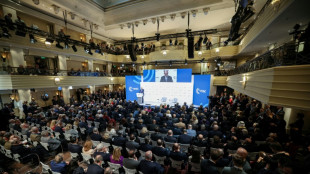 Europe seeks new 'partnership' with US at security gathering
Europe seeks new 'partnership' with US at security gathering
-
Fresh water leak adds to Louvre museum woes
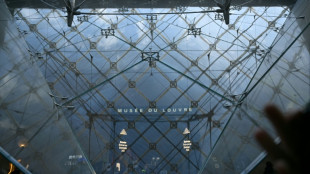

Reality takes center stage in Quebec documentary theater
Mass shootings, artificial intelligence and genetically modified foods are topics not often associated with theater.
But audiences in Canada's Quebec province are flocking to documentary plays that seek to take on difficult topics and spur debate.
"Bringing reality to a stage is challenging," especially when "tackling complex subjects," says Marie-Joanne Boucher, an actress who co-produced a play about the 1989 Ecole Polytechnique massacre, an anti-feminist university mass shooting that left 14 people dead and deeply scarred the nation.
In the play, "Project Polytechnique," two main actors recount the horrors of the attack and press the audience to consider what can be done to prevent more mass shootings.
The words of one of the survivors and of a police officer who was among the first to arrive at the grisly scene are recited, along with comments from a firearms enthusiast and anti-feminists who continue years later in online forums to justify the attack and adulate the killer.
"We say to the spectator: Come to the theater and you will be entertained, but you will also leave with a better overview of today's society," says Annabel Soutar, co-founder of Porte Parole, a pioneer of the genre in Quebec.
Over the past two decades, her theater company has produced about 20 plays on themes as diverse as hydroelectricity, genetically modified foods and health care. Since then, many other docu-theater companies have followed suit.
- One in four plays -
Debuting in the 1920s, in Germany and then in Russia, documentary theater initially developed to support communist ideology. It then spread during the 20th century throughout the world and moved away from propaganda to focus on social topics.
In Canada, it was more in the English-speaking part of the country that the genre was embraced in the 1970s, but it has now taken on new life in Quebec.
Approximately one in four theater productions in Quebec today is a docu-play, according to Herve Guay, an academic who edited a book on the genre.
Part of the reason for this runaway success is the broad "aesthetic variety" of docu-plays, says Guay.
Montreal resident Emilie Cabouat-Peyrache recently saw "Project Polytechnique" and loved it.
"Documentary theater allows you to explore a lot of subjects, sometimes surprising ones," she said.
- 'Apotheosis of documentary theater' -
Another popular docu-play, "Run de lait" (Milk Run), deals with the disappearance of small Quebec farms, Canada's milk quota system and the mental health of farmers.
"We are at the apotheosis of documentary theater and Quebec society is ripe to be challenged in this way on social issues," believes Justin Laramee, who produced the show.
In an interview with AFP, he said he was pleased to perform it for both urban dwellers and farmers alike. "It started conversations, and we need that in our society now."
Allowing audiences to explore new worlds were key objectives for the creators of "Pas perdus," a documentary play about identity, heritage and memory featuring non-actors performing tasks silently while a recording of their voices plays over speakers.
"We live in a society with a lot of noise, a lot of positions taken, not necessarily a lot of depth, and I think we need a return to authenticity," explains the play's co-writer Anais Barbeau-Lavalette
The play has elicited strong responses from audiences. "We get a lot of feedback," Emile Proulx-Cloutier, who wrote the play with Barbeau-Lavalette. "Spectators often tell me that they leave shaken."
P.Santos--AMWN